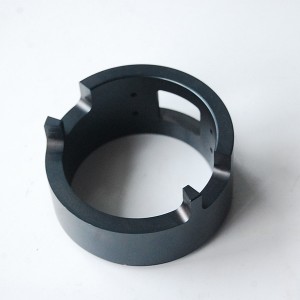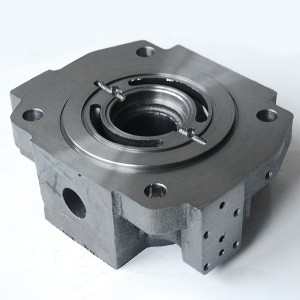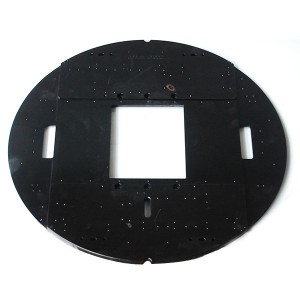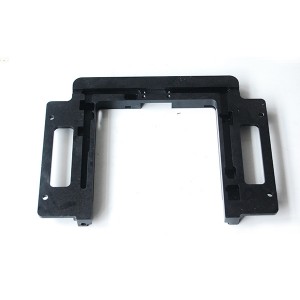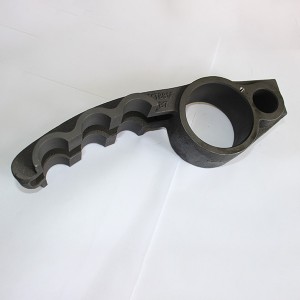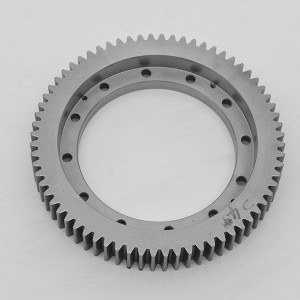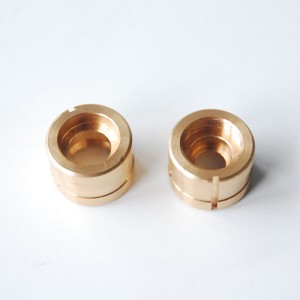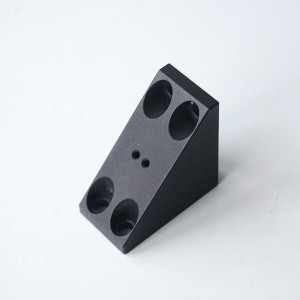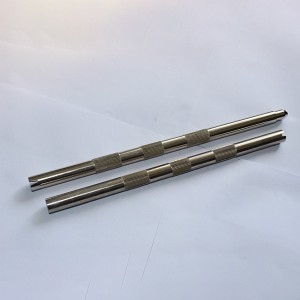Agricultural Machinery Accessories&Parts
Stainless steel: SS304, SS304L, SS316, SS316L, SS303, SS630
Carbon steel: 35CrMo, 42CrMo, ST-52, Ck45, alloy steel; ST-37, S235JR, C20, C45, 1213, 12L14 carbon steel;
Cast steel: GS52
Cast iron: GG20, GG40, GGG40, GGG60
Brass alloy: C36000, C27400, C37000, CuZn36Pb3, CuZn39Pb1, CuZn39Pb2
Aluminum alloy: AlCu4Mg1, AlMg0.7Si, AlMg1SiCu, EN AW-2024, EN AW-6061, EN AW-6063A.
Plastic: DERLIN, Nylon, Teflon, POM, PMMA, PEEK, PTFE
Agricultural machinery relates to the mechanical structures and devices used in farming or other agriculture. There are many types of such equipment, from hand tools and power tools to tractors and the countless kinds of farm implements that they tow or operate. Diverse arrays of equipment are used in both organic and nonorganic farming. Especially since the advent of mechanised agriculture, agricultural machinery is an indispensable part of how the world is fed.
With the coming of the Industrial Revolution and the development of more complicated machines, farming methods took a great leap forward. [1] Instead of harvesting grain by hand with a sharp blade, wheeled machines cut a continuous swath. Instead of threshing the grain by beating it with sticks, threshing machines separated the seeds from the heads and stalks. The first tractors appeared in the late 19th century.
Power for agricultural machinery was originally supplied by ox or other domesticated animals. With the invention of steam power came the portable engine, and later the traction engine, a multipurpose, mobile energy source that was the ground-crawling cousin to the steam locomotive. Agricultural steam engines took over the heavy pulling work of oxen, and were also equipped with a pulley that could power stationary machines via the use of a long belt. The steam-powered machines were low-powered by today's standards but, because of their size and their low gear ratios, they could provide a large drawbar pull. Their slow speed led farmers to comment that tractors had two speeds: "slow, and damn slow."
The internal combustion engine; first the petrol engine, and later diesel engines; became the main source of power for the next generation of tractors. These engines also contributed to the development of the self-propelled, combined harvester and thresher, or combine harvester (also shortened to 'combine'). Instead of cutting the grain stalks and transporting them to a stationary threshing machine, these combines cut, threshed, and separated the grain while moving continuously through the field.
Combines might have taken the harvesting job away from tractors, but tractors still do the majority of work on a modern farm. They are used to push/pull implements—machines that till the ground, plant seed, and perform other tasks.
Tillage implements prepare the soil for planting by loosening the soil and killing weeds or competing plants. The best-known is the plow, the ancient implement that was upgraded in 1838 by John Deere. Plows are now used less frequently in the U.S. than formerly, with offset disks used instead to turn over the soil, and chisels used to gain the depth needed to retain moisture.
The most common type of seeder is called a planter, and spaces seeds out equally in long rows, which are usually two to three feet apart. Some crops are planted by drills, which put out much more seed in rows less than a foot apart, blanketing the field with crops. Transplanters automate the task of transplanting seedlings to the field. With the widespread use of plastic mulch, plastic mulch layers, transplanters, and seeders lay down long rows of plastic, and plant through them automatically.
After planting, other agricultural machinery such as self-propelled sprayers can be used to apply fertilizer and pesticides. Agriculture sprayer application is a method to protect crops from weeds by using herbicides, fungicides, and insecticides. Spraying or planting a cover crop are ways to mix weed growth.
Planting crop Hay balers can be used to tightly package grass or alfalfa into a storable form for the winter months. Modern irrigation relies on machinery. Engines, pumps and other specialized gear provide water quickly and in high volumes to large areas of land. Similar types of equipment such as agriculture sprayers can be used to deliver fertilizers and pesticides.
Besides the tractor, other vehicles have been adapted for use in farming, including trucks, airplanes, and helicopters, such as for transporting crops and making equipment mobile, to aerial spraying and livestock herd management.
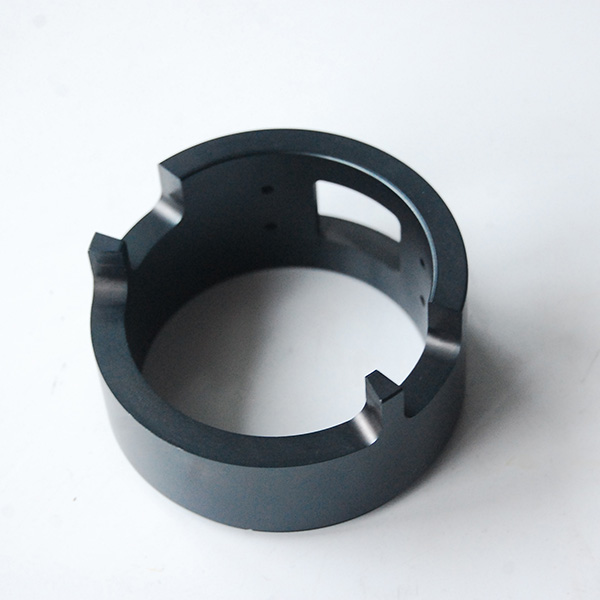
Bush parts with blackening treatment
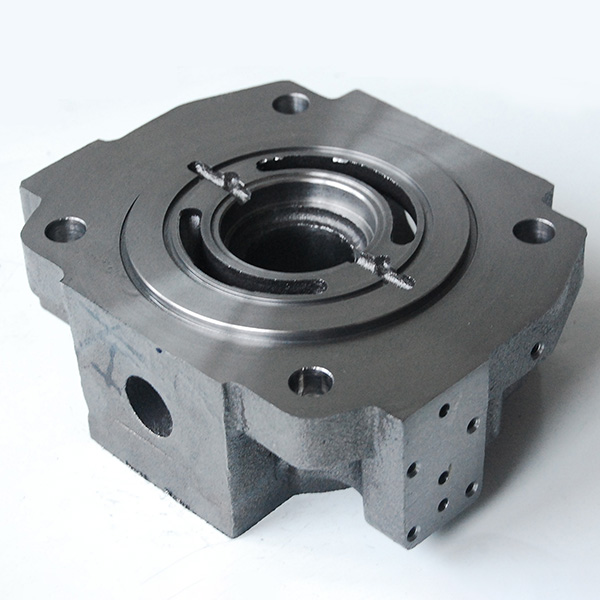
Carbon steel casting
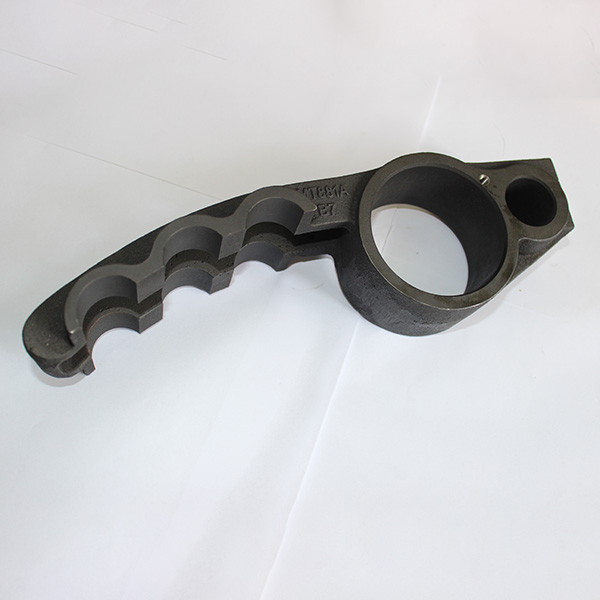
Carbon steel cast parts for textile machine


